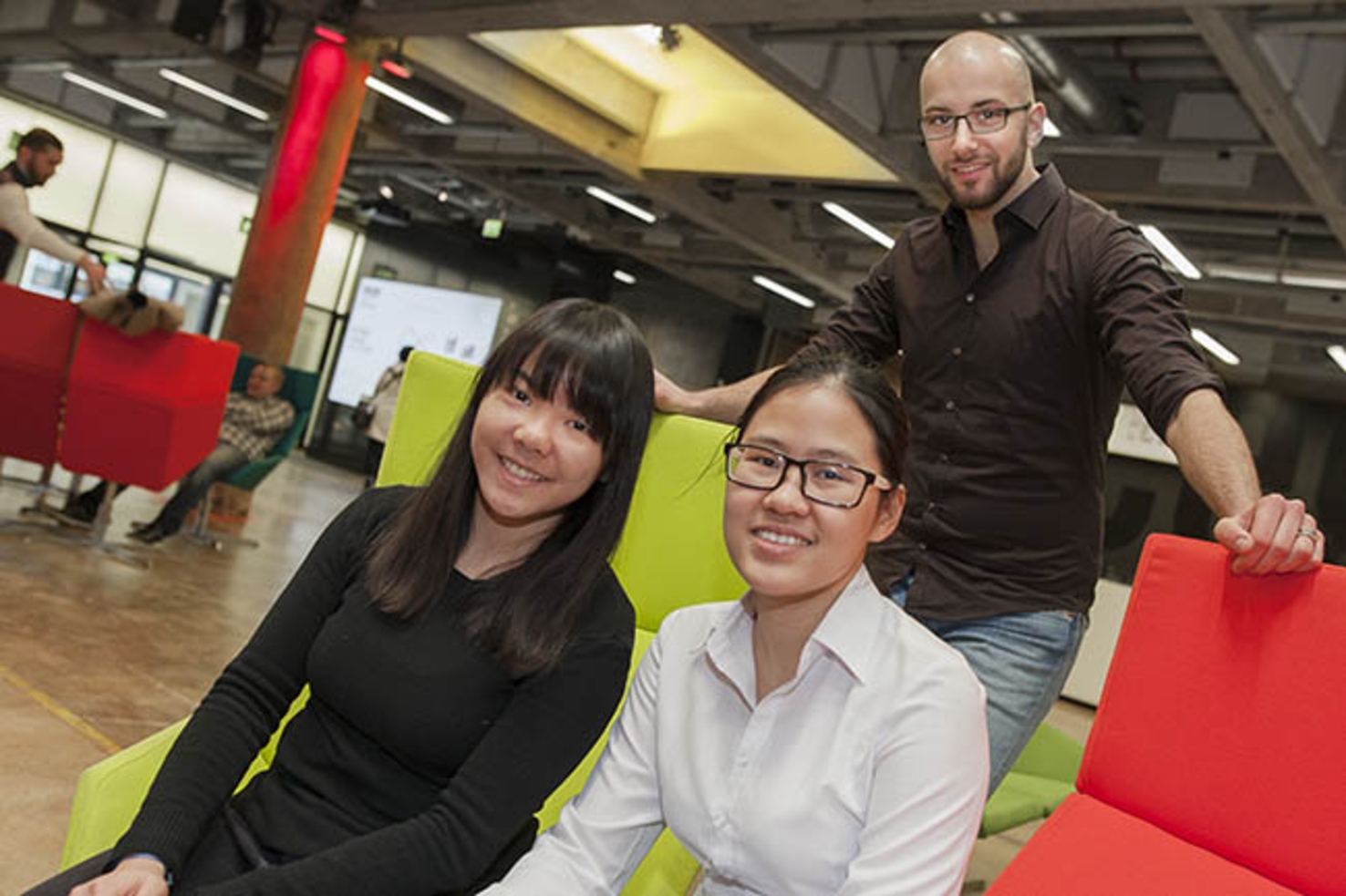New types of service concepts for Espoo
Chinese tourists and Chinese citizens living in Finland as the target group for a commission by the City

News 21.12.2017
The number Chinese tourists and residents in Finland is growing rapidly, and, for this reason, they are increasingly important service users. The City of Espoo has also observed the service needs of new types of target groups. For this reason, it is natural that the city's Head of International Affairs commissioned the Service Innovation study unit to develop new types of services for Chinese target groups.
A total of 36 exchange students and students from various English taught business administration degree programmes took part in the Service Innovations study unit. The study unit came to its culmination on Monday, 11 December at the WeeGee Exhibition Centre in Tapiola, Espoo, where a total of six student teams presented their service concepts.
Versatile and novel services
When developing their service concepts student teams interviewed Chinese tourists and Chinese people living in Finland as well as met with international affairs experts from the City of Espoo and Visit Espoo, which is responsible for tourism in Espoo. In addition to business travellers and tourists, the students learned about the service needs of Chinese people living in Finland.
The service concepts presented at the final event on Monday showed that student groups had approached their target groups' needs from many different angles. Service concept ideas included an app to unite Chinese business travellers and Finnish startups, an escape room concept for school children to teach them about Chinese history and culture, and a networking event for the Chinese community living in Finland.
- The commission gave us free rein, which was of course challenging. However, after some confusion, students took on the task of identifying the needs and wishes of Chinese people, explains study unit lecturer Tarja Chydenius.
- The commission provided a realistic picture of working life requirements and a good idea of the benefits of iterative and customer-oriented development. All the students did very well in this challenging task, she adds.
Interviews provide valuable feedback on ideas
Exchange students Huei-Wen Jang from Taiwan and Philipp Prechler from Germany, who are taking part in the Service Innovations study unit and Linh Le, a Vietnamese student in the English language Degree Programme in Business Information Technology are all enthusiastic about the project:
- These types of studies are very different from what I have become accustomed to at my own higher education institution, Philipp Prechler describes.
- During this study unit, we were given the chance to learn exactly how new services are developed in the real world, Huei-Wen Jang continues.
During the study unit, students utilised the Google Design Sprint framework in the design of service concepts. The students felt that the feedback they received during meetings with experts and interviews with potential customers was very important.
- In my opinion, one of the most important lessons of this study unit has been learning about this method and framework. The interviews, in particular, were important, and based on the feedback we received during interviews, we limited our target group from Chinese tourists to business travellers in particular, the members of the student team describe.
- Another important matter that this project taught was work that progresses in circular cycles: an idea is conceived during interviews, which is then developed and further interviews are then carried out. Students must be able to assess and further develop their ideas throughout the process.
More information:
- Päivi Harmoinen
- Senior Lecturer
- Paivi.Harmoinen@laurea.fi
- Tel (09) 8868 7016
- Kati Tawast
- Senior Lecturer
- Kati.Tawast@laurea.fi
- Tel (09) 8868 7957